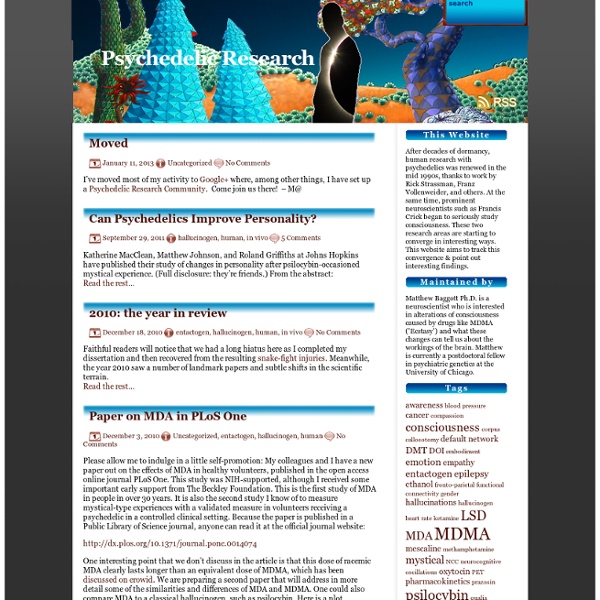



Hallucinogens Have Doctors Tuning In Again - NYTimes.com - (Buil Nothing had any lasting effect until, at the age of 65, he had his first psychedelic experience. He left his home in Vancouver, Wash., to take part in an experiment at Johns Hopkins medical school involving psilocybin, the psychoactive ingredient found in certain mushrooms. Scientists are taking a new look at hallucinogens, which became taboo among regulators after enthusiasts like Timothy Leary promoted them in the 1960s with the slogan “Turn on, tune in, drop out.” Now, using rigorous protocols and safeguards, scientists have won permission to study once again the drugs’ potential for treating mental problems and illuminating the nature of consciousness. After taking the hallucinogen, Dr. “All of a sudden, everything familiar started evaporating,” he recalled. Today, more than a year later, Dr. Researchers from around the world are gathering this week in San Jose, Calif., for the largest conference on psychedelic science held in the United States in four decades. In one of Dr.
Research Institute Nootropic Nootropics (/noʊ.əˈtrɒpɨks/ noh-ə-TROP-iks), also referred to as smart drugs, memory enhancers, neuro enhancers, cognitive enhancers, and intelligence enhancers, are drugs, supplements, nutraceuticals, and functional foods that improve one or more aspects of mental function, such as working memory, motivation, and attention.[1][2] The word nootropic was coined in 1972 by the Romanian Dr. Corneliu E. Giurgea,[3][4] derived from the Greek words νους nous, or "mind", and τρέπειν trepein meaning to bend or turn.[5] Availability and prevalence[edit] At present, there are only a few drugs which have been shown to improve some aspect of cognition in medical reviews. These drugs are purportedly used primarily to treat cognitive or motor function difficulties attributable to such disorders as Alzheimer's disease, Parkinson's disease, Huntington's disease and ADHD. Academic use[edit] Several factors positively and negatively influence the use of drugs to increase cognitive performance. Drugs[edit]